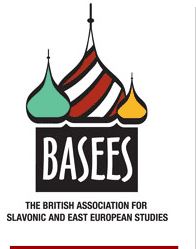Borders in the Post-Socialist: Space Past, Present, Future
Область исследований (Research Fields): Borders, mobility and imagination in post-Soviet space
Тип гранта (Type of Grant): Conference
Cтрана (Country): Ukraine
Сроки подачи заявок (Deadline): 2015, April 1
Duration: One week, July 3-8.
Topics of investigation could include:
Defining and defending borders:
• Borders as object and result of power relations
• Nationalism, separatism and new states
• State borders vs. imperial borders vs. regional borders
• Borders and armed conflicts; cross-border violence
• The actors involved: politicians, scientists, intellectuals, military
• Border crossing, border control: enforcing, maintaining, and regulating borders
Living with the border:
• Borders emerging, shifting, and vanishing
• Self-identifications, nationalism, separatism
• Borders creating minorities; minorities encountering, negotiating and contesting borders
• Material and social effects of establishing new borders or transforming old ones
• Borders and the natural environment; borders and urban space
• The border in everyday life
• Internal borders: borders between populations inside the country or the city Mobility
• Migration policies
• Transborder circulation and communication
• Impact of the fall of the Soviet Union, EU enlargement, and local wars
• The effect of the EU border; externalization of EU migration policy; Schengen Area and “Fortress Europe”
Economy:
• Transborder trade and business at different levels, from state to private and small business
• Everyday practices, rituals, economies of bordercrossing
• Customs and tax policies, transnational agreements.
• Borders: positive or negative impact on the economy?
Borders, space, and the imagination:
• Borders shaping political, economic, social belonging and representation
• Imagined borders, remembered borders, forgotten borders: east, west, central, home, ours, theirs
• Vanished borders in practice and representation (Habsburg / Romanov border; Soviet / nonSoviet border)
Eligibility
The Summer School is open to PhD students (or students enrolled in a kandidat nauk program) and young researchers (up to six years removed from their PhD or kandidat nauk degree). Proposals strong on theory and empirical research are particularly welcomed. The working language of the Summer School is English. Participants must be comfortable working in English.
Program Costs
There is no program fee. The organizers will cover accommodation, meals, workshops and all excursions. The participants (or their institutions) must pay travel expenses from their home country to Kyiv; the transfer from Kyiv to Chernivtsi will be covered by the summer school budget. How to apply? To be considered for the Summer School, candidates must complete an application form (that includes a 500 word project proposal) and add a CV. They can also send an additional written sample, such as a conference paper, a dissertation chapter, or a publication (optional).
The application must be sent by e-mail to ukrainesummerschool@gmail.com, by 1 April 2015. The application form can be requested at ukrainesummerschool@gmail.com or downloaded on the following address: http://socialsciences. uottawa.ca/ukraine/ukraine-summer-school.
Format:
Workshop and Fieldwork The Summer School is interdisciplinary and follows a workshop format. Each participant will present a pre-circulated paper and receive comments from a group of international faculty, as well as from other participants. Participants are expected to contribute actively to discussions and to participate in the extracurricular program. Throughout the week we will include roundtables, field visits, local interviews and excursions within the region. These off-site activities will contribute to our seminar discussions. Location: Chernivtsi (Ukraine)












